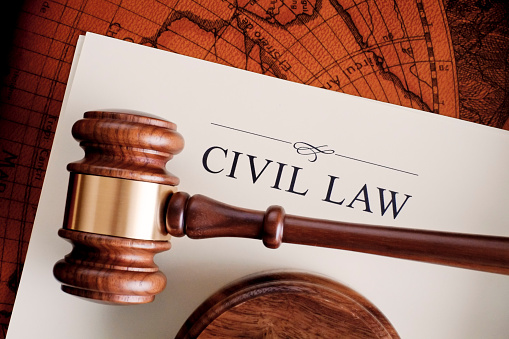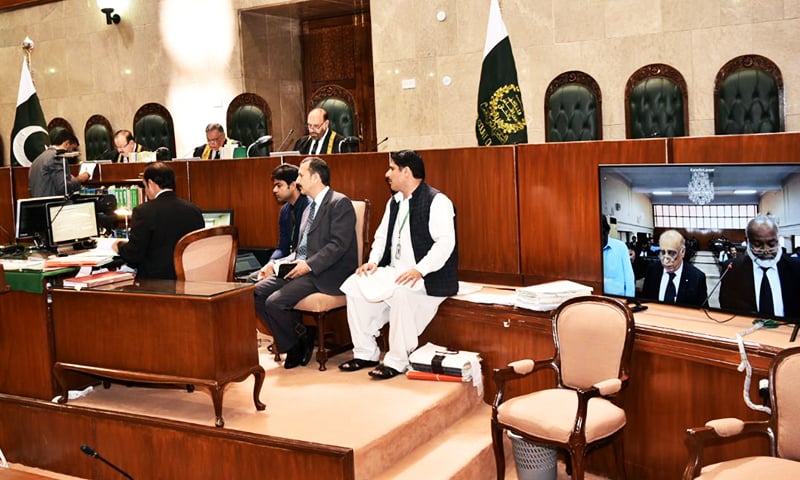TABLE OF CONTENT:
Common Law
Civil Law
Court Law
LEGAL SYSTEM OF PAKISTAN: COMMON LAW, CIVIL LAW, AND COURT SYSTEM
Pakistan's legal system is a blend of various legal traditions, including Islamic law, English common law, and local customary law. The legal system is organized into several tiers, with the Supreme Court of Pakistan being the highest court of appeal.
In this article we will discuss the constitution and Islamic Law in Pakistan:
Common Law:

Pakistan inherited the common law legal system from British colonial rule, which still forms the basis of much of the country's legal system. The common law is applied in areas such as contract law, tort law, and criminal law.
Equity, fairness, and justice serve as the cornerstones of Pakistan's common law system. To achieve a just and equitable result, these principles are applied to situations in a way that takes into account the particular circumstances of each case.
Both civil and criminal matters in Pakistan are handled under the common law system. Contracts, property disputes, and other civil problems are all interpreted according to the common law system in civil cases. The common law system is utilized in criminal trials to interpret and apply the law, as well as to decide whether a person is guilty or innocent.
The idea of precedent is one of the key components of Pakistan's common law system. This implies that decisions issued by higher courts in earlier cases serve as a reference for making decisions in situations that are similar in the future. In this way, as new cases are decided and new precedents are established, the law is continuously changing.
The function of judges in interpreting the law is another crucial aspect of Pakistan's common law system. The law must be interpreted and applied to the facts of each case by judges. Through their rulings, they are also accountable for creating new precedents.
Civil Law:

The private rights and obligations of people, businesses, and organizations in Pakistan are governed by the Pakistani Civil Law. It is drawn from Islamic law, common law, and statutory law and is also referred to as "personal law" or "private law."
Civil Law in Pakistan encompasses a wide range of subjects, including, among others, tort law, contract law, family law, and inheritance law. Here is a quick summary of some of Pakistan's most important civil law areas:
-
Property Law: The Transfer of Property Act, of 1882, is the primary statute governing property law in Pakistan. This law governs the transfer of ownership of real estate, such as houses, land, and other movable property. It also covers mortgages, leases, and the rights and obligations of tenants and landlords.
-
Contract Law: The Contract Act, 1872, governs contracts in Pakistan. This legislation sets down remedies for breach of contract and regulates the creation, fulfillment, and enforcement of contracts.
-
Family Law: The Muslim Family Laws Ordinance of 1961 and the Family Courts Act of 1964 set the rules for family law in Pakistan. These laws cover inheritance, marriage, divorce, and child custody.
-
Inheritance Law: The Succession Act, of 1925 governs Pakistan's laws regarding intestate succession. This legislation deals with how a deceased person's assets and property are divided up among their heirs.
-
Tort Law: The common law concepts serve as the foundation for Pakistani tort law. It addresses civil wrongs or injuries brought on by one person against another and offers redress.
Court System:

Pakistan's court system is divided into two main categories: civil courts and criminal courts. The civil courts are further divided into district courts, high courts, and the Supreme Court. The criminal courts include magistrates' courts, session courts, and the high courts.
-
Judicial Independence: The judiciary in Pakistan is constitutionally independent, and judges are appointed by the Judicial Commission of Pakistan. However, there have been concerns about the independence of the judiciary in recent years.
-
Legal Profession: The legal profession in Pakistan is regulated by the Pakistan Bar Council, which oversees the admission and discipline of lawyers. Lawyers in Pakistan are required to hold a law degree and pass a bar examination before they can practice law.
CONCLUSION:


You must be logged in to post a comment.